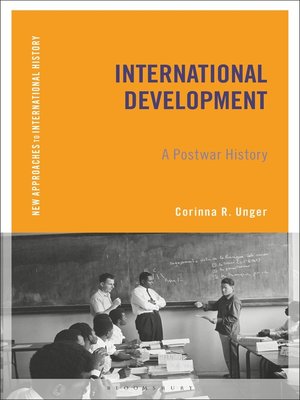International Development
ebook ∣ A Postwar History · New Approaches to International History
By Corinna R. Unger

Sign up to save your library
With an OverDrive account, you can save your favorite libraries for at-a-glance information about availability. Find out more about OverDrive accounts.
Find this title in Libby, the library reading app by OverDrive.



Search for a digital library with this title
Title found at these libraries:
| Library Name | Distance |
|---|---|
| Loading... |
International Development: A Postwar History offers the first concise historical overview of international development policies and practices in the 20th century.
Embracing a longue durée perspective, the book describes the emergence of the development field at the intersection of late colonialism, the Second World War, the onset of decolonization, and the Cold War. It discusses the role of international organizations, colonial administrations, national governments, and transnational actors in the making of the field, and it analyzes how the political, intellectual, and economic changes over the course of the postwar period affected the understanding of and expectations toward development.
By drawing on examples of development projects in different parts of the world and in different fields, Corinna R. Unger shows how the plurality of development experiences shaped the notion of development as we know it today. This book is ideal for scholars seeking to understand the history of development assistance and to gain new insight into the international history of the 20th century.
Embracing a longue durée perspective, the book describes the emergence of the development field at the intersection of late colonialism, the Second World War, the onset of decolonization, and the Cold War. It discusses the role of international organizations, colonial administrations, national governments, and transnational actors in the making of the field, and it analyzes how the political, intellectual, and economic changes over the course of the postwar period affected the understanding of and expectations toward development.
By drawing on examples of development projects in different parts of the world and in different fields, Corinna R. Unger shows how the plurality of development experiences shaped the notion of development as we know it today. This book is ideal for scholars seeking to understand the history of development assistance and to gain new insight into the international history of the 20th century.







